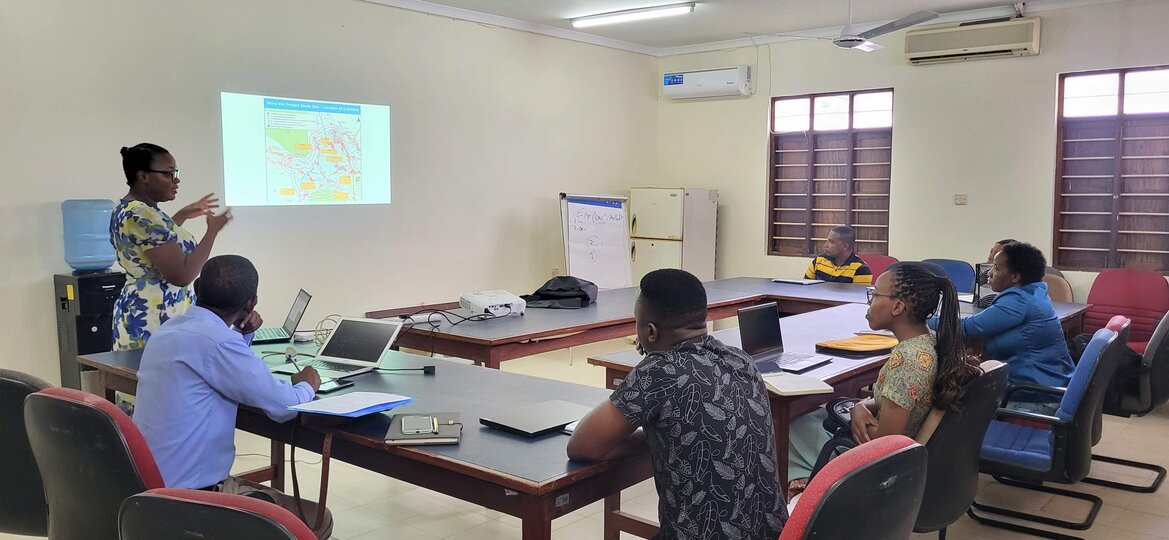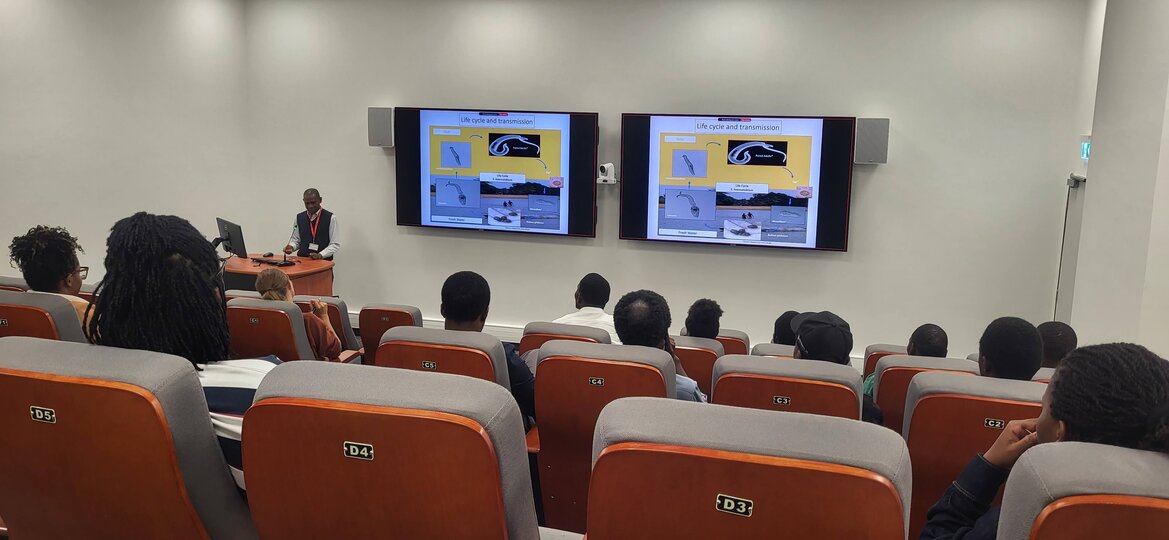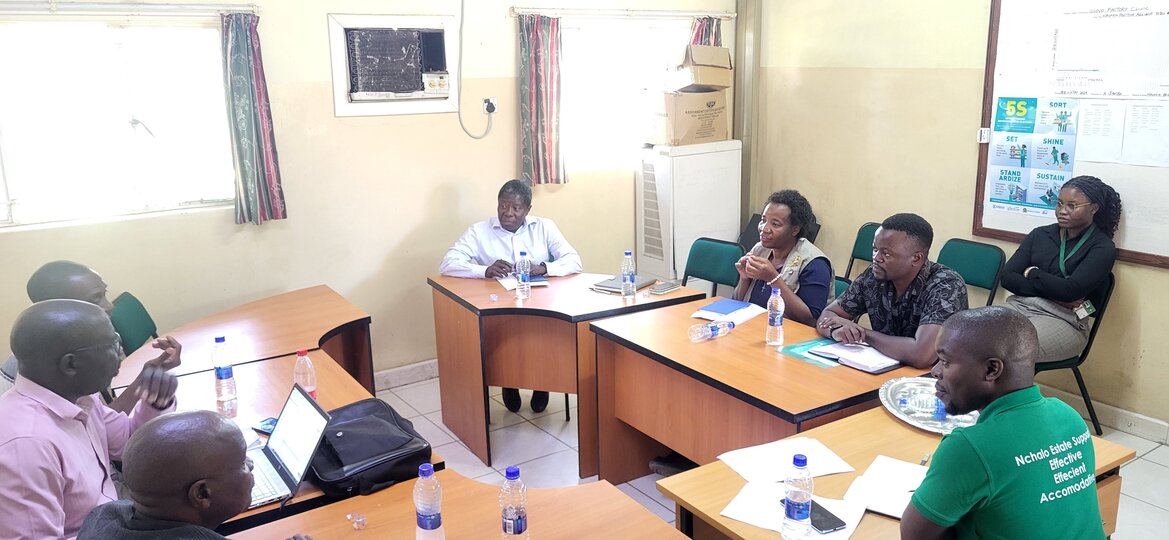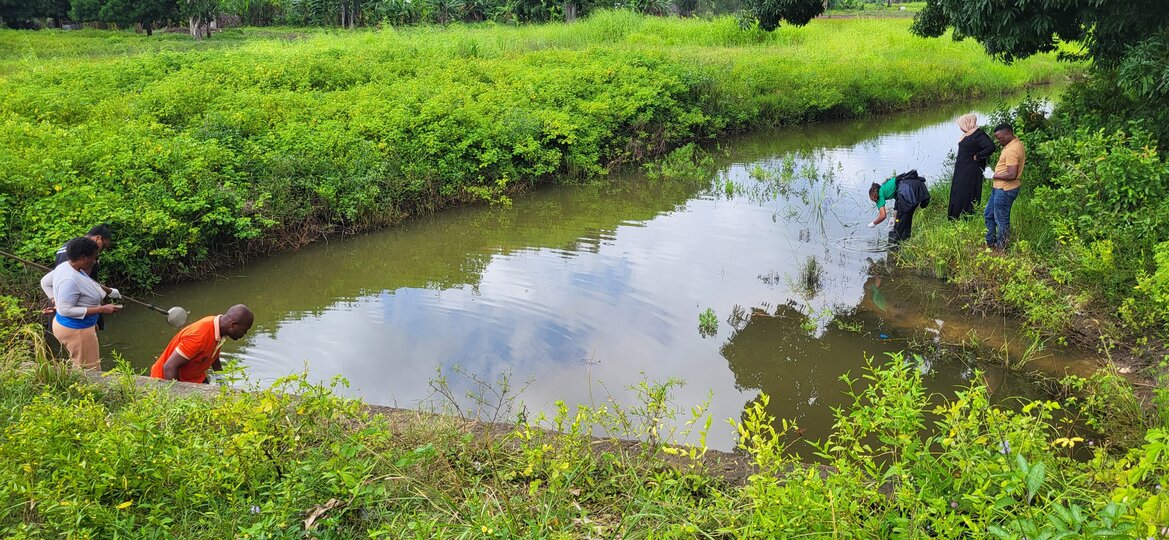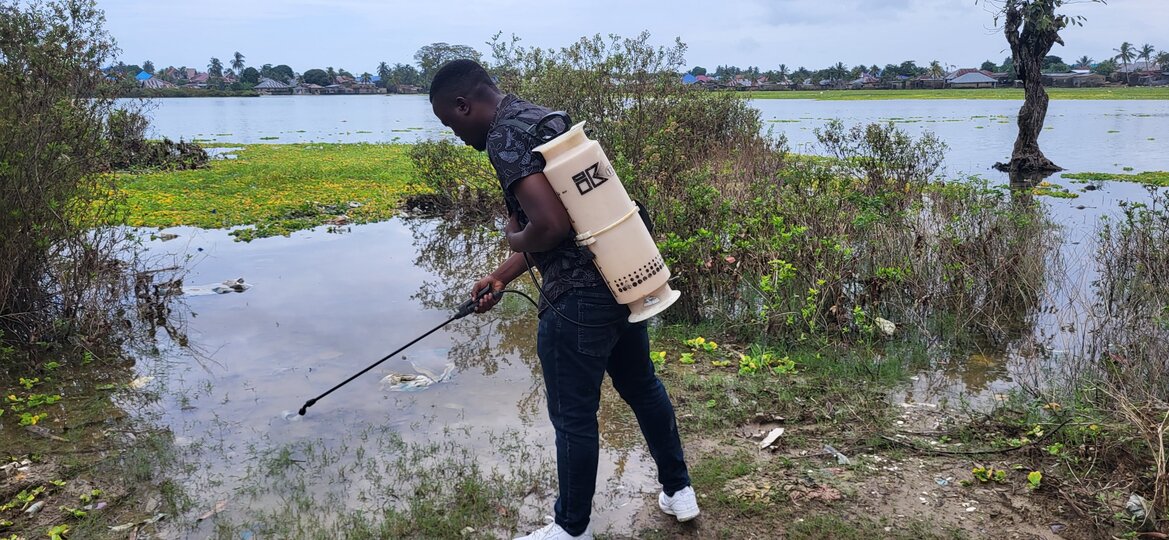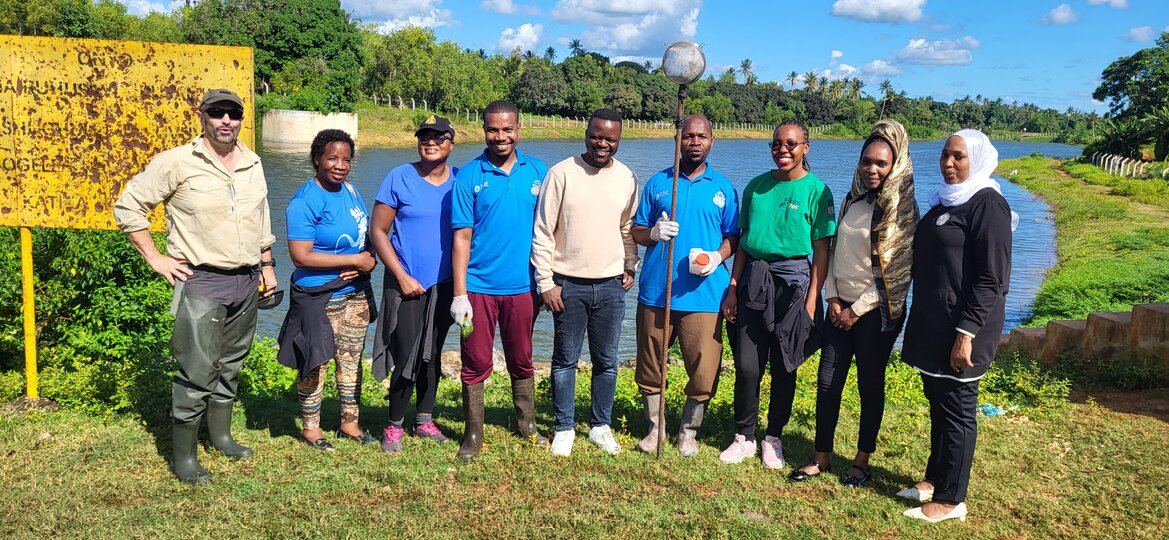Shire-Vec - Zanzibar Exchange Visit - summary report
On June 3rd, 2025, a team of researchers from the Malawi Liverpool Wellcome Research Programme (MLW) Shire Valley Vector Control Project (Shire-Vec) project, Blessings Chiepa, Eggrey Aisha Kambewa, Patience Korea, and Lucy Kaunga, along with Mrs. Margaret Mikwenda, the Ministry of Health official responsible for the Neglected Tropical Diseases (NTD) programme in Malawi, departed for Zanzibar on a knowledge exchange visit. The visit was hosted by the Zanzibar NTD Programme and aimed to facilitate mutual learning on schistosomiasis control strategies.
Arrival and Initial Engagements
The Malawi team arrived in Zanzibar on 4th June. On 5th June, the group met with Dr. Shaali Ame, the NTD Programme Manager for Zanzibar, who introduced them to the broader NTD team and provided an outline of the scheduled activities, the initial two days involved in-depth discussions on Zanzibar’s schistosomiasis control strategies, including Mass Drug Administration (MDA), snail control through molluscicide, and behaviour change initiatives supported by improved water and sanitation infrastructure.
These discussions explored the applicability of Zanzibar’s approaches within the Malawian context. Limited funding and chemical importation barriers were key challenges in implementing similar interventions in Malawi. Aisha presented insights from the Shire-Vec project in Chikwawa, Malawi, highlighting ongoing malacological work. Her presentation detailed the region's different breeding habitats, water bodies, and the snail species identified in the area. She also presented early results from environmental management interventions to reduce snail populations.
Field Activities and Practical Training
The team participated in extensive fieldwork across multiple sites, gaining exposure to various aquatic habitats associated with snail breeding and schistosomiasis transmission. These included rice paddies in Kilombero, streams, and ponds (Mtende pond, Mozley pond, Kinyasini Dam).
A practical session on mollusciciding was held at a site in the Kilombero region. Although no live snails were found in the rice paddies, egg masses indicated active breeding grounds. Bulinus snails, intermediate hosts of schistosomiasis, were detected in a nearby runoff stream. Once their presence was confirmed, niclosamide was applied. The Malawi team received practical chemical preparation and application training using backpack sprayers.
The following day, the team revisited the site to assess the impact of mollusciciding. Dead snails and small fish confirmed the chemical’s effectiveness. In Zanzibar there were no concerns regarding its ecological impact, however, elsewhere these were noted, which is an important consideration for future use in Malawi.
The visit also included a cultural tour of Stone Town, which allowed the team to appreciate Zanzibar’s rich historical and social context.
Continued Engagements and Technical Discussions
Upon Prof. Russell Stothard's (from Liverpool School of Tropical Medicine) arrival on June 9th and before Shaali’s departure to China, the team held a review session to reflect on activities conducted thus far and the upcoming activities. Blessings presented school-based prevalence survey data from Chikwawa, which revealed schistosomiasis prevalence rates as high as 85% in some schools, with both urogenital and intestinal forms present. This sparked a discussion on the role of mollusciciding in supplementing MDA efforts.
Mrs. Mikwenda shared the Ministry of Health’s prior challenges in sustaining mollusciciding and MDA campaigns, including financial constraints and regulatory barriers to importing molluscicides.
Field visits continued across a range of aquatic environments. Niclosamide was applied at one significant water body using backpack sprayers and the motorized pump method. The demonstrations showed how application techniques vary depending on the habitat type.
A visit to Mozley's pond and ditch in Muyuni, located in southern Zanzibar, provided historical context on schistosomiasis control dating back to 1939. The team learned about earlier interventions, such as draining a large pond that served as a transmission hotspot, efforts that remain effective today.
Strategic Planning and Collaboration
On 11th June, the team participated in a virtual meeting involving representatives from the Zanzibar NTD Programme (Bim), the Malawi team, and Illovo Nchalo Estate in Chikwawa. Dr. Albert Mkhumbwa (Estate Manager) and Dr. Waleke Khumalo (Medical Officer) also joined the session. During the meeting, Blessings presented findings from the epidemiology work package, emphasizing the urgency of implementing snail control interventions given the high disease burden in school-aged children.
The discussion explored practical steps for introducing mollusciciding at the estate level, including the regulatory process for importing chemicals into Malawi. Illovo personnel expressed strong interest in adopting mollusciciding to reduce snail populations. Plans were made for Dr. Shaali to meet with Illovo staff during his upcoming visit to Malawi to explore collaboration further.
Final Discussions & Way forward
The team discussed the outline of the visit report, as well as activities and schedules for the Zanzibar team’s visit to Malawi, highlighting the need to meet MoH officials in Lilongwe, visit MLW office, arranging for Dr. Shaali to deliver a lecture at MLW on schistosomiasis control in Zanzibar. Further field visits were completed related to bovine schistosomiasis. The team was accompanied by Othman, Zanzibar’s Livestock Researcher and visited 2 abattoirs, went to Muwanda slaughterhouse, Nungwi (North of the island), and had a chance to visit the new government research center for livestock and associated diseases. This marked the end of the visit.
As a way forward, Dr. Shaali’s visit to Malawi was prepared including a planned meeting with MoH officials responsible for NTDs in Lilongwe, visit Shire-Vec research sites in Chikwawa, meet Illovo officials, tour MLW research facilities and deliver a lecture concerning Zanzibar’s elimination efforts for Schistosomiasis from their experience. The Malawi team departed Zanzibar to Dar Es Salaam enroute Blantyre on 16th June.
Visit of Dr. Shaali Ame to Malawi
Dr. Shaali arrived in Malawi for the exchange visit on 20th July and departed on 26th July. On 21st July Dr. Shaali, along with members of the Shire-Vec research group (Dr. Themba, Patience and Blessings) met the Principal Secretary of the Ministry of Health Malawi, and technical Directors responsible for the NTDs Programmes. During this courtesy meeting the attendees briefly discussed the knowledge and experience sharing related to the control of schistosomiasis in Zanzibar and Malawi. Later the same day, an additional meeting was convened and involved more technical people from the NTD programme in Malawi; after which the group departed to Blantyre.
On 23rd July, Dr. Shaali along with Dr. Themba, Patience, Blessings and the snail team from the Shire-Vec research group visited Chikwawa (one of the areas with high prevalence of urogenital schistosomiasis), collected Bulinus snail and briefly provided health education to villagers who were around during snail collection. The team headed to Illovo sugar factory for a discussion with local leadership. This meeting focused on:
- Potential risks associated with development and use of the irrigation canal,
- Schistosomiasis support initiatives from Illovo.
The Illovo administration was aware of the risks associated with that project and have already outlined measures to mitigate the situation. For the schistosomiasis support to Mangulenje village, the Illovo sugar factory’s administration is supportive, although the village is too far from the area of their mandate, but they will see what can be done.
On 24th July Dr. Shaali and Blessings visited the University of Malawi in Zomba and met with the Executive Dean for the School of Biological Sciences and Head of the Entomology Unit. This open discussion mostly focused on the control and elimination of schistosomiasis across the two countries and beyond. The team later visited the teaching laboratories including the entomology laboratory.
On 25th July, in the morning, Dr. Shaali visited different laboratory sections of the Shire-Vec research. In the afternoon he gave a presentation on schistosomiasis including a Q&A section for the participants. On 26th July, he travelled back to Zanzibar.
The Zanzibar - Malawi exchange visits in June and July of 2025 underscored the importance of South–South collaboration in addressing shared public health challenges; and demonstrated the potential for regionally driven solutions to neglected tropical diseases.


